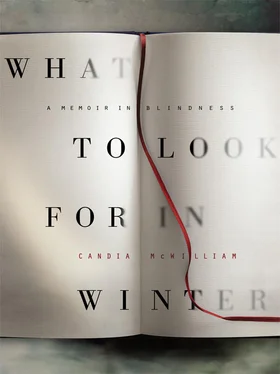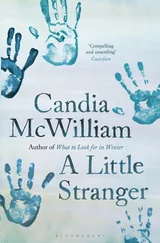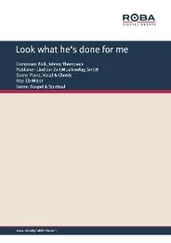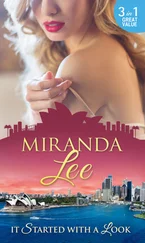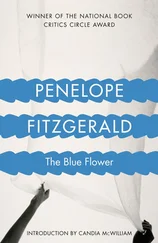There is a particular formal stance of heartlessness that is a certain English way of protecting the heart, the elegant sternness that is one mode and often goes with the throwaway unadvertised, indeed denied, deep sensibility that sees off the vain and fake. It may be found at a peak of comedy and sadness in the work of Evelyn Waugh. It has been a tone congenial to Fram all along and now he inhabits it.
He is an alert reader. He grasped just as well too the empty dove-cote that is the McWilliam tone. Scots say doocot, and so do I, but I thought I should spell it out. It’s only by a feather that I didn’t say columbarium, which is the word that first came to me; but that word is too full and successful and plump, though hardly too classical, for my father, who mentions in one of his books the fine columbarium kept by Drummond of Hawthornden.
I left Hampshire just in time to return there for our customary family Christmas.
I travelled by train from London carrying nothing but the stockings for the younger children. Standing room only on the train.
‘You are joking?’ said the woman who stood bumpily next to me in the vestibule when I told her I couldn’t see very well, which was why I was peering around and craning, ‘I had you down for different, but not blind. You’ve got lipstick on.’
We talked about Christmas plans.
Her son-in-law made sure the family had a tree that wasn’t just thrown away. They had one tree outdoors with lights and real roots in the ground, and an artificial tree indoors with a long string of bud lights that also came in useful at birthdays. This was the first year she wasn’t taking her cat, Graham, to the family over Christmas. The neighbour had a key and was going into her flat on the day itself, with Graham’s stocking.
‘Nothing fancy, though. Toys, biscuits, a card and that. Just what he’d expect.’
Chapter 7: Snowdropped In
On 8 January, my cat Ormiston was run over, the first time ever he had strayed from the girls’ garden, where all summer he chewed grass and flew up to pat the air inaccurately over the spread purple buddleia tassels where a butterfly had been. Killed instantly, no marks. I still don’t think about it. I skirt it in my mind because I am afraid to start, and, if he was only a cat, what do I do with all the other grief? Crying helps the sight after all.
Or it did, before I had the first operation for the Crawford Brow Suspension, on the 21st of January of this year, 2009. My eyes are different since that operation. Crying is hotter and tighter. I’ll come to that.
Leander and Rachel were wretched. They had a haunted sense that if he had stayed with me he would have been alive. If he’d stayed with me, though, he wouldn’t have had such a life, with companions, butterfly-attracting plants put in at his request, and fresh fish. He would not have had his summer of being Warburton and exploring the uncatty group ethic he enjoyed. He was a team player; an unusual characteristic in a cat.
After Ormy was buried, Minoo went round to the house in Oxford. He prefers his cats disdainful, sardonic and free, but he ate an entire lemon drizzle cake in memory of Ormy and reported the handsome location of my people-pleasing cat’s remains.
Something of Ormy’s appeal for me was that slight dogginess. He was in on the joke and played up to it, sometimes allowing himself to retrieve a ball if we were alone and unobserved.
He was funny, and you laugh aloud less often if you live on your own and don’t really read. I didn’t think I would ever say that about myself. It’s always been a sentence that puzzled me: ‘I don’t really read.’ I see it now. It means, ‘I read what I have to, like instructions on dangerous machinery or in lifts.’
My first blind summer, two friends, married to one another, had sat with me at Tite Street. They’d brought a rhubarb tart with crème patissière. He had glancingly said that he had counselled a mutual friend not to buy a puppy as it would be just another thing to grow fond of and eventually to lose. Rita the blue cat had fallen in love with him.
Now, a year and a half on, he, I and Rita remained above the earth. Ormiston had been an inch of air, a pinch of fluff. My friend’s wife had been his response and crown of life. Who can plumb her loss? Nothing took her away. Nothing had her. Nothing had its victory. Nothing endures.
I now missed the foolish flat face of my cat up against my neck, telling me that it was time to get up at five-thirty in the morning. Even though he had been doing it in another house, with other people, I had known he was on earth and cared for. What comic strands have emerged throughout these years of eye-time (well? There is much talk of me-time). Ormy had been a guileless occasion of laughter.
Others went some way to providing other forms of diversion. Some have to be buried for discretion, or transmuted.
My favourite fun theme has been the silent wager I make with myself about the literary ambitions of the medically distinguished, and of quacks, too, now that I think about it.
It’s my limited understanding that I have been visiting doctors so regularly for thirty-six months because I am decreasingly able to see. With my eyes, that is. My, admittedly subjective, sense has been that reading, by which I not only made to some extent my living, and by which I live, has become difficult. I’ll put it simply. Very often I can’t see. I’m blind.
You will be aware of this. You are a reader.
However, not invariably, but often enough to give reality a firm shake, a doctor will say to me as I leave his consulting rooms, very possibly having written a cheque (is that where I go wrong? They see that I can write, after all?), ‘Ah, Mrs Dinshaw, Candia, did you say you were a writer? Books, is that?’
A bit. Once. Things a bit challenging at present. My eyes, you see. Cranking the odd thing out for friends. Scottish literary papers. Things like that (thinking, ‘That’ll put him off. Surely he will realise that it’s a polite rebuttal of what he doesn’t know I know he’s going to say?’)
Women practitioners are as liable to do this as men. Let me be fair.
‘Ah yes. I must ask my wife to look you up. I don’t get much time to read. Other than for work. Papers, you know.’
Indeed so.
‘But you meet all sorts doing this job. It’s taken me all over the world. Some pretty amazing places. You wouldn’t believe. And I’ve often thought.’
If you had the time.
‘If I had a moment, that it would make a book. An interesting one.’
Not a novel, then.
‘I often think that real life reaches places, well, you won’t mind my saying this, but truth is, it’s not just a cliché, stranger than fiction. And you don’t make anything up. It’s all true.’
This is getting in deep. Ask it, do.
‘Would you know of who I should talk to about getting it published?’
And then, a little carried away by the different glories attendant upon the idea of being a writer as well as a doctor, ‘Would you mind having a look at it for me? I’ve actually had time to get something down. It’s typed, you know. No doctor’s writing!’
I am really interested by doctors. I wanted to be one. My mother and I, retrospect tells me, both go, or went, for tall men in old-fashioned clothes and good overcoats, which was, in Edinburgh terms in her young womanhood, doctors. We visited a doctor with pinstriped long legs and a watch chain quite a lot. I sat on his knee and he gave me boiled sweets from a jar with no top. His height and expertise and silver hair imprinted me for life with one way of being a glamorous man. I’ve no idea who prescribed her sleepers.
I would happily write about doctors in fiction. Or write fiction about doctors, or help a doctor friend write a paper. I might easily ghost a doctor’s memoir, should he want me to, were he to find my sight. A fair swap, words for seeing?
Читать дальше
